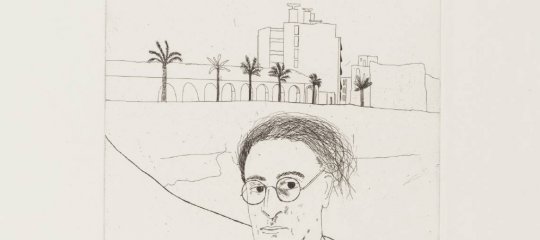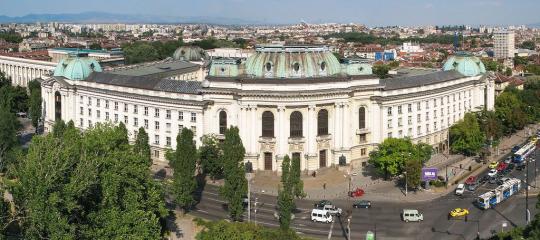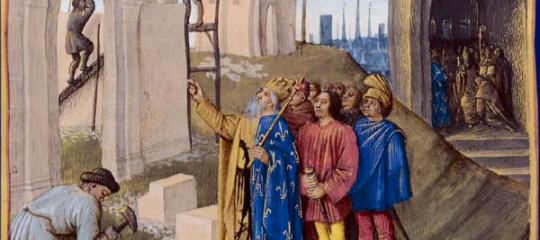Πρόσφατα άρθρα
The form of Dramatic Monologue as perfected by Ritsos’ poetry.
Yannis Ritsos is widely regarded as one of the most significant figures in contemporary Greek poetry. He managed to revolutionise the idea of a dramatic monologue and create not just beautiful poetry, but also a multifaceted art form that has depth on psychological, social, and philosophical levels throughout all of his publications. The dramatic monologue form was popularised by Victorian poets such as Robert Browning, but Ritsos revitalised it and many poets to this day still use his style as inspiration. His ability to construct identities and characters that the reader can genuinely sense and almost experience is skilful.

Theatricality, didacticism, prosaic verse, use of persons as symbols, contemplative mood, flashbacks are some of Cavafy’s recurring ‘tropes’. Discuss.
Within the vast poetry collection of Constantine Cavafy, arguably, a pattern of recurring tropes emerges, offering the readers an in depth understanding of what defines his artistry. The poems that I have chosen for this essay being Young Men of Sidon, Alexandrian Kings and Kaisarion, from his book The Collected poems. One might say that they serve as an example of Cavafy’s gravitation towards an array of literary devices such as theatricality, didacticism, prosaic verse, use of persons as symbols, contemplative mood and flashbacks, one might say that they create a narrative that extends beyond the individual poems, inviting us to explore the timeless themes captured by Cavafy.

Discuss the portrayal and effects of loss in the poetry of Cavafy
My Mother's Sin and Other Stories A series of lectures on Modern Greek literature taught by Dr Dimitra Tzanidaki-Kreps This is a first class essay of one of my students, Jenny Wight, who took my course this year writing beautifully on the effects of loss in Cavafy's poetry.
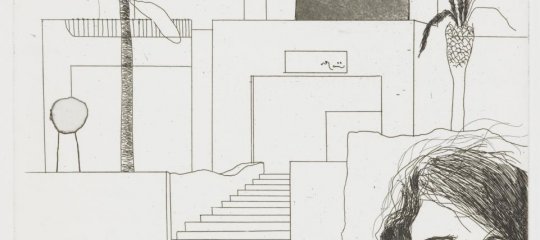
In Ritsos’ Moonlight Sonata what sentiments does the woman’s confession provoke/inspire to you and how these compare to the ones felt by the young man who remains silent throughout her long monologue.
Yannis Ritsos' "Moonlight Sonata" is a poignant and emotionally charged poem that presents a deeply intimate monologue of a woman speaking to a silent young man. The setting is night, with the moonlight casting a dreamlike atmosphere over the scene. The woman's confession, filled with personal revelations, memories, and emotions, evokes a variety of sentiments in the reader and provokes a complex response.

How does Seferis’ mythical method interact with Greece’s lasting socio-political issues?
Seferis uses the mythical method in his poetry to allude to and comment upon social and political issues in Greece in his lifetime. Before discussing his poetry, it is important to define what is meant by Seferis’ mythical method. This method can be described as allusive, as although Seferis does make direct references to myth he does so in inventive ways, for example by using narrative space, symbols and characters to evoke Greek myths.

Discuss the portrayal and effects of loss in the poetry of Cavafy
My Mother's Sin and Other Stories A series of lectures on Modern Greek literature taught by Dr Dimitra Tzanidaki-Kreps This is a first class essay of one of my students, Jenny Wight, who took my course this year writing beautifully on the effects of loss in Cavafy's poetry.

ἐξ ἐρίων δὴ καὶ κλωστήρων καὶ ἀτράκτων
This essay examines that metaphor in the context of the political and war situation at the time Lysistrata was first performed. It considers traditional gender roles in the fifth-century Greek polis and Lysistrata’s inversion of those roles in her weaving analogy. Aristophanes’ comedic purpose in the weaving speech, in Lysistrata as a whole, and more generally across his corpus is examined. In addition, some observations are made about the sound pattern of Lysistrata’s speech and, in a personal argument, a speculative suggestion is advanced that the audience might have associated her cadences with the familiar rhythms of a domestic weaving loom.
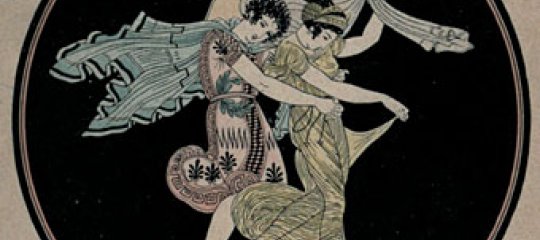

«Examine how homoerotic love is expressed in Cavafy’s erotic poetry» By Yousuf Danawi, Reading University
This essay aims to examine the manner in which homoerotic love is expressed in Constantine Peter Cavafy’s erotic poetry.Initially, it will provide a brief introduction entailing contextual information. Subsequently, this essay will bestow an intricate analysis of his erotic poems, with a particular focus on elucidating recurrent themes pertaining tohomoerotic love. The analysis will explore both the formal and thematic constituents of Cavafy’s erotic poetry, accompanied by a pervading extraction of deeper meaning.This examination will be enhanced utilising relevant secondary literature. The primary source that consists of the poems to be discussed in this essay derives from a digital anthology that comprises Cavafy’s ‘Recognised’, ‘Denounced’, and ‘Hidden’ poems

Poetics and Histories: To What Extent Did C. P. Cavafy Alter Historical Narratives, and for What Artistic Purposes?
stuident Name: Joseph Watson Module Lecturer: Dr Dimitra Tzanidaki-Kreps Date of Submission: 11/01/2016
